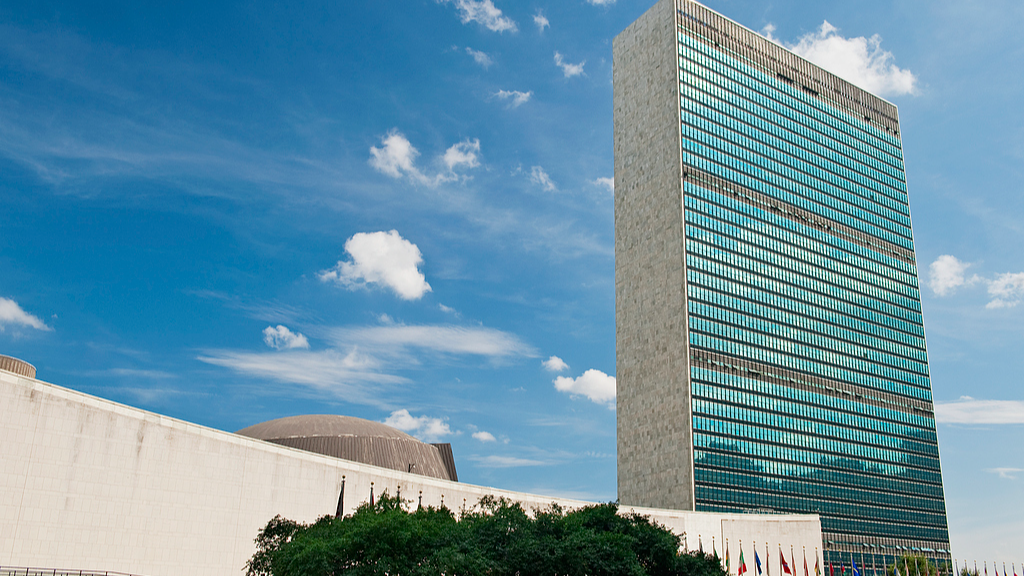
Headquarters of the United Nations, New York, the United States. /VCG
China has called on the international community to uphold the United Nations–centered international system and an international order based on international law, as global turbulence intensifies.
Speaking at a UN meeting on Monday, Geng Shuang, China's Deputy Permanent Representative to the United Nations, said the world today faces intertwined challenges, making it more important than ever to safeguard the UN's authority and the principles of the UN Charter.
Geng highlighted China's Global Governance Initiative, which advocates for sovereign equality, rule of law, multilateralism, people-centered development and results-oriented cooperation. Guided by this initiative, China stands ready to work with all countries to defend the purposes and principles of the UN Charter, and build a fairer and more reasonable global governance system, said Geng.
He underscored that maintaining international peace and security is a solemn commitment enshrined in the Charter, urging all nations to respect sovereignty and territorial integrity, adopt the vision of common, comprehensive, cooperative and sustainable security, and resolve disputes peacefully. He said that China firmly objects to the frequent use or threat of force.
Geng reiterated China's opposition to unilateral sanctions, emphasizing that UN Security Council measures should aim to facilitate political solutions, comply with the Charter, and minimize impacts on civilians and third parties.
The envoy also reaffirmed China's long-standing support for peaceful settlement of disputes through dialogue and negotiation. He said China has maintained an objective and constructive role in addressing issues such as the Ukraine crisis and the Israel-Palestine conflict, contributing to peace efforts through diplomatic means.
Geng noted that in May, China and other countries jointly launched the International Mediation Institute, the world's first intergovernmental organization dedicated to resolving international disputes through mediation. Officially inaugurated in Hong Kong on October 20, the institute fills an institutional gap in global mediation efforts and constitutes a new public good for peaceful dispute resolution.
"China welcomes more countries and international organizations to join and cooperate with the institute," Geng said, adding that China will continue to uphold the authority of the UN Charter, support multilateralism, work for global peace and development, and promote a community with a shared future for humanity.



